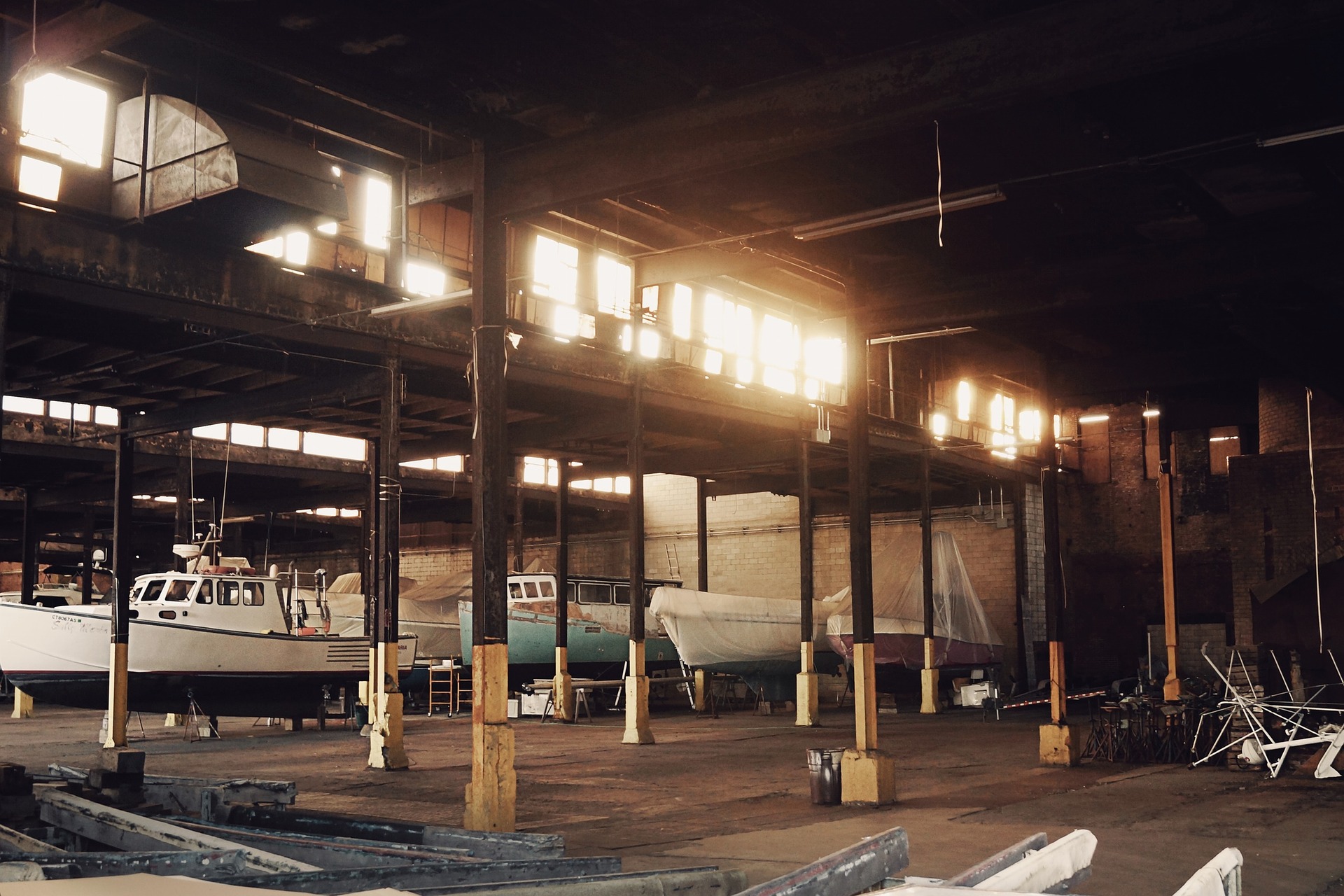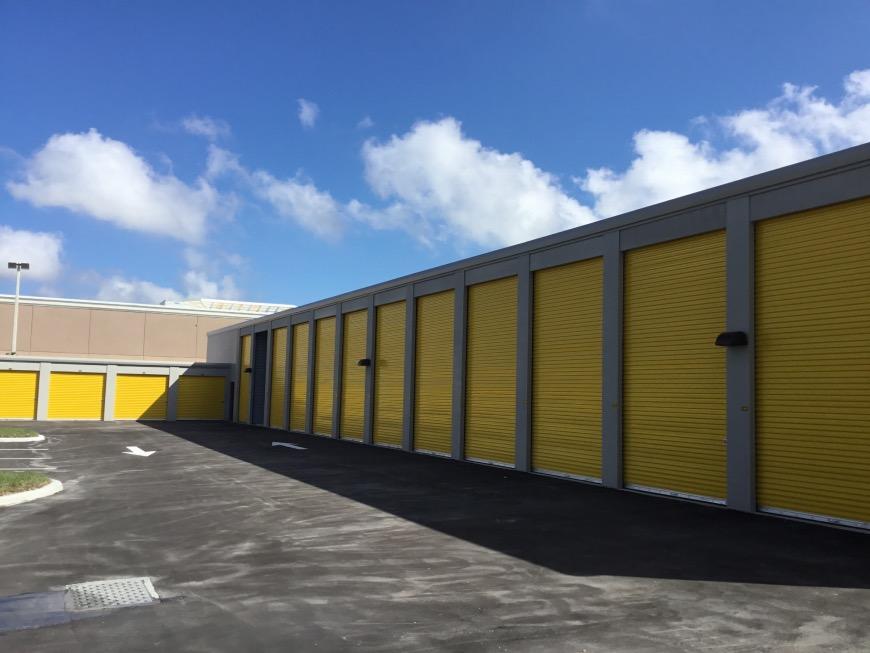
One of the more costly aspects of owning a boat is docking and storing it. Boat storage options can be as simple as pulling the trailer into your garage or as complex as needing your boat to be stored on a lift.
The storage options available will mostly depend on your budget, the climate, the amount of space you have (or don’t have) at home, and the size of the boat in question. Some boats can be stored inside a regular-sized storage unit for less than it would cost to keep the boat at a marina. On the other hand, larger vessels might need to be stored outside on jack stands or in the water. It’s no wonder finding adequate boat storage for the off-season can quickly become a headache (and probably one of the least fun aspects of boat ownership!).
Related: Guide to RV and Boat Storage in Self-Storage Facilities
Where do you store a boat during the off-season?
Depending on where you live, there are a multitude of options for host storage during the non-peak months. That includes covered boat storage, outdoor boat storage, and boat storage units.
Let’s discuss the differences between the types of boat storage facilities and how you can decide which option is right for you. We also have some exclusive storage tips that can help you save money in the process.
How to Store a Boat at Home

People with a lot of land can store their boat directly on their property. Obviously, this is one of the more accessible boat storage options, so long as you have the space to spare! One thing to note before you go ahead and park your trailer, though: Make sure your town doesn’t have any regulations against it. Also, pick a spot that is away from any trees. Even if you keep your boat covered, the influx of leaves and debris can be detrimental to your boat in the long term.
Some other inexpensive at-home boat storage options include:
- Garage
- Driveway
- Barn
Smaller boats are ideal if you’re hoping to keep your storage space at home. But if you have a boat longer than the length of a car or truck, you’ll likely need to look elsewhere for storage.
More Boat Storage Facilities to Consider:
Need room at home or on your own property to store your boat during the off-season? A few other businesses that usually offer boat storage include:
- Marinas
- Warehouses
- Self-storage facilities
Related: How to Store a Paddle Board: Helpful Tips & Storage Solutions
How to Store a Boat at a Marina

One advantage of storing a boat at a marina is that you can dock and store your boat in the same place. Marina self-storage facilities typically have staff to help you repair, clean, and winterize your vessel. This is a great option if you’re a first-time boat owner or have questions for an expert.
Marinas usually offer on–water boat storage and land storage, so it’s essential to determine which is best for you. The main difference between marinas and other, more typical self-storage businesses is that marinas can accommodate much larger boats. They also specialize in boat-specific storage, meaning their experts are always well-equipped for questions and problems as they arise.
The two most common types of in-water boat storage options that marinas offer include:
1. Slip/Dock Storage
In most self-storage marinas, you can rent a dock for the entire year. If you are storing a large boat in the winter on the water, the marina will require that the water is moving and won’t freeze over. Though this option may be more affordable, it isn’t necessarily worth it in some cases due to cold climates or exposure to salt water. However, if you store your boat this way, take your boat out of the water every few months to perform basic maintenance.
2. Dry Dock Lifts
If you have a large vessel that is difficult to trailer, ask the marina if they offer boat lift storage. These lifts allow for dry dock storage without completely removing your boat from the water. A dry dock lift will raise the boat out of the water just enough to protect the bottom. What’s great is that these lifts can be covered or uncovered depending on your needs. If you own a dock on your property, you can also buy a boat storage lift to utilize on your own.
Related: How to Store a Kayak Without Damaging the Hull
How to Store a Boat in a Storage Unit

If you need to store your boat off-site, you’ll can likely find a nearby storage facility with a variety of storage options that can accommodate your vehicle. There are pros and cons to each self-storage option mentioned below. Outdoor boat storage might save you money on storage, but indoor storage might save you on repair costs in the long run. Remember that only some facilities will have every available size or option. Smaller boats can fit in 10×15 or 10×20 unit, while some may need 10×30 parking space. Be sure to look online at our storage unit guide to help you find the right size.
Types of Boat Storage Units
1. Outdoor Boat Storage
Covered Boat Storage — These parking spaces for boats have large canopy-like covers overhead to protect boats and other vehicles from the elements. The roofs of these shared, easily accessible spaces are typically made of aluminum or cloth for coverage.
Uncovered Boat Storage — This less-expensive option similarly provides customers with a designated parking space for their boats, except they’re not covered by anything. Hoping to take advantage of this option? We recommend that boats in colder climates should be shrink-wrapped to help protect them from the elements. A tarp won’t be as effective at keeping out moisture and critters.
Off-Season Boat Storage Tip: You can save money on shrink-wrapping your boat by reusing your cover year after year. If adequately removed, you can re-shrink your boat with that same cover for 3 to 4 years!
2. Indoor Boat Storage
Boat Storage Warehouses — You’ll find that warehouses explicitly designed for boat storage will offer either stacked or unstacked options. The stacked boat storage option is standard in areas that house a large number of vessels but don’t have much land to store them. Instead, these facilities use vertical space by stacking boats inside a sizable indoor boat storage warehouse. You won’t be able to access your boat in these units without the company pulling the boat from its spot for you, which can also be costly. If you plan on performing maintenance and working on the boat throughout the off-season, stacked storage may not be the best option.
Indoor Storage Unit for Vehicles — These storage units are similar to other indoor storage units for large vehicles. They come with garage-style doors and are private and secure. You’ll be able to access your boat at any time during business hours. This option may be limited and primarily dependent on the size of your boat, so be sure to reserve a spot early in the off-season and see if there is a space large enough.
Related: How to Pick the Best Storage Unit Size for Your Needs
Is it OK to store a boat outside in winter?
Some boats can be kept in the water year-round depending on where you live. For example, Florida and California boat owners can reap the benefits of boat ownership year-round. But if you live in the Northern part of the United States, where winters can be harsh and snowy, you’ll unfortunately only get to make use of your boat for a few months out of the year.
If you don’t plan on using your boat for a long time, consider storing the boat on land in a covered storage area or a storage unit. Keeping your boat in the water year-round can significantly decrease the vehicle’s longevity, especially if kept in salt water.
How Much Does Boat Storage Cost?

Boat storage prices will vary depending on location, climate, demand, space size, and length of time needed. The cost will also fluctuate depending on the time of year you need to store your boat. Off-season storage during the winter months could cost more than summer storage due to increased seasonal demand.
General Boat Storage Costs
As far as affordability, below are some options listed from the least expensive to the most costly. Remember, this is a general guideline, and some factors may make this list fluctuate:
- $ — Uncovered Outdoor
- $$ — Covered Outdoor
- $$$ — Warehouse Rack
- $$$$ — Private Indoor Unit
- $$$$$ — Climate Controlled Unit
There are other costs associated with winter boat storage to consider. Some you can do yourself, and professionals can do others. These extra boat storage costs might include the following:
- Pulling a large boat out of the water on a lift
- Cleaning the bottom of the boat
- Winterizing the engine and water systems
- Shrink wrapping the exterior
- Placing large boats on jack stands
Another monetary factor to consider is how your storage fees are taxed. In some states, trailer storage is taxed at a higher rate. Make sure that you ask the storage consultant how much the taxes are and if those are included in the estimate.
Find boat storage near you to determine how much a unit will cost you.
Related: Storage Tips for Jet Skis, Snowmobiles and Other Seasonal Toys
Boat Storage Tip: You can save money on shrink wrapping your boat by reusing your cover year after year. If adequately removed, you can re-shrink your boat with that same cover for 3 to 4 years if you do it yourself.
Boat Storage Units: Rules and Regulations
Before you rent extra space, make sure to address the following:
- Measure your boat and trailer before selecting a storage space.
- Make sure your boat is on a trailer.
- You must have valid registration and title to store your boat.
Boat Storage Rental Options Made Easy
We hope this guide helped you determine which option makes the most sense. Whether you store your boat in the garage or a storage unit, the result will be the same if you take the proper care to winterize your boat ahead of time.
Not sure you can afford to keep your boat off-site? Find out if any of these storage unit deals will help you keep the cost down.
Update: This post was originally published on February 11th, 2019, by Lauren Thomann and was revised on March 28th, 2023, with new information from Emily Malkowski.







